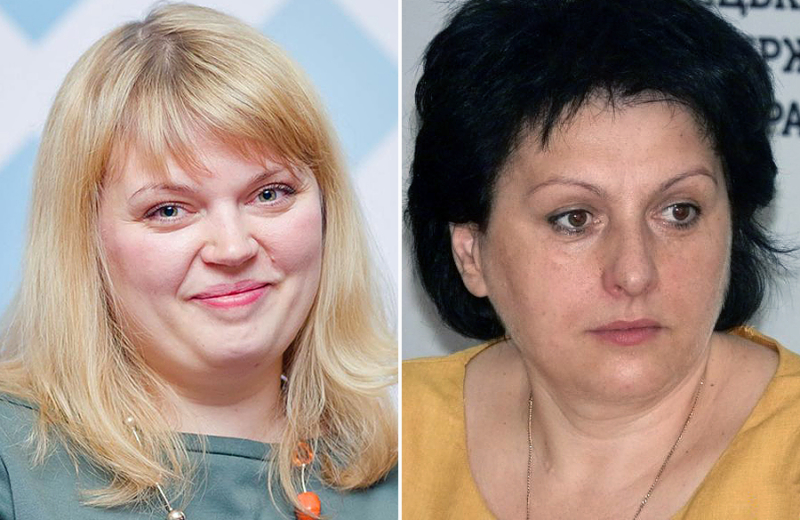Reformer of the week – Olena Shcherban
Olena Shcherban, a lawyer and board member of the Anti-Corruption Action Center, is leading the charge against Ukraine’s corrupt law enforcement system, which is attacking the center and its members.
She said on Jan. 25 that the criminal case against Vitaly Shabunin, head of the Anti-Corruption Center’s executive board, had been sent to trial. He believes it to be an effort to intimidate and silence the Anti-Corruption Action Center.
The first hearing in the Shabunin case will be held at 2.30 p.m. on Jan. 30 at Kyiv’s Dnipro District Court.
Shabunin is accused of beating blogger Vsevolod Filimonenko, an aide to pro-government lawmaker Serhiy Melnychuk.
Prosecutors on Jan. 15 amended the charges against Shabunin, increasing the maximum term of punishment from three years in prison to five years, on the grounds that Filimonenko is supposedly a journalist.
The Anti-Corruption Action Center also said on Jan. 23 that a separate tax evasion case against it had been transferred to the Cherkasy Oblast prosecutor’s office.
Meanwhile, David Sakvarelidze, a former reformist top prosecutor who took on corruption in the prosecution service in 2015, said on Jan. 25 that the criminal case against him was also being sent to trial.
Sakvarelidze, an ally of ex-Georgian President Mikheil Saakashvili, is accused of illegally transporting him through the border and resisting law enforcement officers during Saakashvili’s breakthrough into Ukraine on Sept. 10. He believes the case to be a political vendetta by President Petro Poroshenko.
Meanwhile, in December three activists of the AutoMaidan civil-society group were charged with throwing eggs at Oleh Barna, a lawmaker from the Bloc of President Petro Poroshenko, at an anti-government protest in July. They face between four and seven years in prison if convicted.
They believe the case to be a vendetta by Prosecutor General Yuriy Lutsenko. The charges were brought immediately after the AutoMaidan went to Lutsenko’s house on Dec. 9 to demand the prosecutor general’s resignation.
In October police, prosecutors and the Security Service of Ukraine raided the All-Ukrainian Network of People Who Live with HIV/AIDS and the Patients of Ukraine, another healthcare advocacy group. The anti-corruption groups are accused of embezzling foreign grant money and using it to fund Russian-separatist forces.
Kharkiv-based anti-corruption activists Dmytro Bulakh and Yevhen Lisichkin and Poltava-based whistleblower judge Larysa Golnyk were attacked and beaten in recent months. Meanwhile, human rights activist and lawyer Iryna Nozdrovska was found dead on Jan. 1.
Anti-reformer of the week – Tetiana Shkrebko
Tetiana Shkrebko, a former top official of the National Agency for Preventing Corruption, was given a 5-year suspended sentence in 2016 for embezzling Hr 3 billion in a scheme spearheaded by ex-President Viktor Yanukovych and his Tax and Revenue Minister Oleksandr Klymenko, according to a secret ruling leaked to the Nashi Hroshi watchdog and published on Jan. 16.
Despite having been convicted for graft, Shkrebko was later appointed as a deputy head of the NAPC’s department for financial and lifestyle monitoring and conducted many asset declaration checks with violations of the law, according to an audit conducted by Hanna Solomatina and Oksana Divnich, top officials of the NAPC.
Solomatina and Divnich said in November that the agency is involved in large-scale corruption and completely controlled by the Presidential Administration. The NAPC and the Presidential Administration denied the accusations.
Solomatina published what she says is her correspondence with Oleksiy Horashchenkov, a Presidential Administration official, in which he is trying to give her orders. The Kyiv Post has also obtained the documents of an audit on which the corruption investigation is based.
In November a case into alleged NAPC corruption was transferred on the orders of Chief Anti-Corruption Prosecutor Nazar Kholodnytsky and Prosecutor General Yuriy Lutsenko from the independent National Anti-Corruption Bureau of Ukraine to the presidentially controlled Security Service of Ukraine, in what critics, including Solomatina, believe to be an effort to destroy the case.
In December, Solomatina said that the NAPC’s leadership was pressuring, punishing and firing whistleblowers, while a competition commission, one of whose members is Horashchenkov, is choosing the new top NAPC officials.



